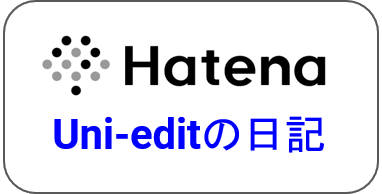難易度:中級
Uni-editの英文校正者は、”the present study”という自己言及表現を見るのに慣れています。それは、著者が自分の論文の中で、その論文またそれに伴う研究に言及するために使用します。”the present study”は、特に専門用語でも、テーマに特定されることもなく、自然科学分野でも、社会科学分野でも同じ頻度で使用されます。ほとんどのアジアの言語には、この意味を正確に示す言葉があります。たとえば、中国語(běn yánjiū)と日本語(hon-kenkyuu)の「本研究」がそうです。したがって、英語のノンネイティブ・スピーカーにとって、直接、自分の母語から英語に翻訳するのは簡単です。
しかし、英語には“the present study”を意味するのにいくつかの方法があります。そのすべての選択肢がすでに自分のライターとしてのツールボックスの中にあるという自信がありますか。
"the present study"を正しく使用する
”the present study”というフレーズは、論文の目的の記述に最もよくみられます。
The present study investigated individual and environmental factors of adults with mental disorders, and their relationships with psychiatric medication compliance.
(和訳:本研究では、精神疾患の成人患者の個人的因子および環境的因子と、それらの精神疾患の薬物治療コンプライアンスとの関係を調査した。)
もう一つ、よくみられるのは、前置詞句の”in the present study”を使用した構文です。この構文では、明瞭さと簡潔さを高めるために、一人称または能動態を使用するように勧めます。ただし、受動態も可能です。
In the present study, we investigated individual and environmental factors of adults with mental disorders, and their relationships with psychiatric medication compliance.
Individual and environmental factors of adults with mental disorders were investigated in the present study, as well as their relationships with psychiatric medication compliance.
さらに、”the current study"は”the present study"ほど頻繁には使用されないようですが、まさしく同義なので、全く同じように使用できます。
The current study investigated individual and environmental factors of adults with mental disorders, and their relationships with psychiatric medication compliance.
"the present study”ばかりを使用するのは良い文章ではない
それでは、なぜ"the present study"だけを何度も使えないのでしょうか。常に"the present study”を使用することに文法的な問題はありませんが、スタイルの問題があります。何度も何度も同じ語句を使用することは、良くない英語の文章スタイルと考えられます。読者は、著者が新たに述べることがないために同じ語句を繰り返しているとみなすか、あるいは現在の情報を全く同様な言葉で表された過去の情報と区別できないために焦点を失っているか、飽き飽きしているか、混乱しているとみなします。
以下に示す二つの選択肢には二つの利点があります。一つ目は簡潔さです。以下の各選択肢は、"the present study"より短いです。Abstractのように、単語数が限定されている場合、以下の選択肢のいずれかを使うと各事例で簡単に一、二語節約できます。
二つ目の利点は、有標性(markedness)の減少です。有標性とは広い言語概念ですが、語彙の状況と読者の理解力において、よく使われる言葉のほうが滅多に使われない言葉より精神的努力を必要としないことを意味します。したがって、不必要に複雑な(すなわち、単純に表現しても十分である)フレーズの使用を最小限にすることで、読者が、主題を特定する言葉を理解することにエネルギーを集中させることができます。主題を特定する言い回しは、多くの場合に必然的に複雑となります。
ちなみに、スペースを節約することと有標性を減らすことは、頭字語を使用する二つの主な理由です。次の文1または文2のどちらが、簡単に読めるでしょうか。
Sentence 1: Researchers from the United States of America are working on using clustered regularly interspaced short palindromic repeats technology to edit segments of deoxyribonucleic acid in an attempt to treat various heart conditions.
(和訳:アメリカ合衆国の研究者らは、さまざまな心臓病を治療するために、クラスター化した規則的にスペースのある短いパリンドローム反復配列の技術を使用してデオキシリボ核酸の部分を編集する検討を続けている。)
Sentence 2: Researchers from the USA are working on using CRISPR technology to edit segments of DNA in an attempt to treat various heart conditions.
選択肢1:一人称態
”we"や”our"のような一人称複数代名詞はよく使われ、それらを使えば有標性が低くなります。”We found"や”Our results show”のようなフレーズから、通常、“the present study”のことを指していることは明らかです。
The results of the present study demonstrate that female gender may predict lower continuation rates for rational emotive therapy.
(和訳:本研究の結果は、女性であることが論理療法の継続率が低いことを予測しうることを示している。)
Our results demonstrate that female gender may predict lower continuation rates for rational emotive therapy.
しかし、問題が生じることがあります。これまでに書いた複数の論文の研究結果について言及する場合はどうでしょう。この文脈では、"our results”は本研究の結果とも、過去の研究結果ともとれます。
この問題は、一般語を使って簡単に解決できます。前者の本研究を指す場合は"here"を、後者の過去の研究結果を指す場合は"previous”または"past”を用います。
In a previous study, we found that rational emotive therapy showed similar efficacy rates regardless of gender. However, our results here demonstrate that female gender may predict lower continuation rates for this treatment.
(和訳:先の研究において、我々は論理療法が性別に関係なく同程度の有効率を示すことを見出した。しかしながら、ここでの我々の結果は、女性であることがこの治療の低い継続率を予測しうることを示している。)
選択肢2:"This study"
”This study”は、”the present study”と同じようによく使用されます。それを自然にかつ正しく使用するために種々の文型を学ぶ必要はありません。
This study investigated individual and environmental factors of adults with mental disorders, and their relationships with psychiatric medication compliance.
ただし、複数の研究の結果について触れたり、比較したりするパラグラフでは、注意しなければなりません。
Our study’s findings corroborate those of Smith et al. (2013), who found that antidepressant compliance depends on several environmental factors, such as living environment. However, this study’s emphasis on one kind of medication means it remains unclear whether other types of medication show the same trend.
(和訳:我々の研究の知見はSmithら(2013)の知見を実証するものである。Smithらは抗うつ薬のコンプライアンスが生活環境のようないくつかの環境因子によって決まることを見出している。しかし、一種類の薬物治療に関するこの研究の注目点は、その他のタイプの薬物治療が同じ傾向を示すかどうかは不明なままであることを意味する。)
この場合に、著者のいう"their study"はすなわち、Smithらの抗うつ薬のみについての研究ですか。あるいは、著者のいう"the present study"はすなわち、一種類の薬物治療についての我々の研究を意味していますか。同じパラグラフで複数の研究に言及するとき、”this study”が曖昧性を生み出す可能性があるということがわかるでしょう。
要約
"the present study"というフレーズには一つの正確な意味がありますが、学術英語以外では滅多に出合うことはありません。"the present study"を用いると、意味することは確実に伝わりますが、そればかりを用いると文章が堅苦しく、不自然になり、説得力がなくなります。
その代わりに、"this"や"here"のような、より自然で一般的な英単語を利用すると、伝達力を向上させる良い機会となるはずです。この単一の文脈でそれらの単語のニュアンスをうまく使いこなせれば、すべての英語のメディアを読む場合にも、これらのありふれた単語の暗に含まれる関係や対象とするものへの理解が無意識のうちに向上するでしょう。次の研究論文を書くときに試してみませんか。「善は急げ」です。
Download Tip Here:  What's wrong with "the present study"?
What's wrong with "the present study"?
Uni-edit English Writing Tip 013: What's wrong with "the present study"?
Difficulty: Intermediate
Uni-edit English Editors are accustomed to seeing the self-referential phrase “the present study”, which an author uses in a paper to refer to itself or accompanying research. It’s not a particularly technical term, nor is it subject-specific: it appears in the natural sciences and social sciences with equal frequency. Most Asian languages have a word with exactly this meaning: for example, 本研究 in both Chinese (běn yánjiū) and Japanese (hon-kenkyū), so it’s easy for non-native speakers of English to translate directly from their native language.
However, English has several ways to refer to the present study. Are you confident that you have all of the options in your writer’s toolbox already?
Using “the present study” correctly
The phrase “the present study” is most commonly encountered in a paper’s purpose statement.
The present study investigated individual and environmental factors of adults with mental disorders, and their relationships with psychiatric medication compliance.
Another common construction is the prepositional phrase “in the present study”. In these cases, we recommend using first person or active voice to enhance clarity and conciseness, although passive voice is also possible.
In the present study, we investigated individual and environmental factors of adults with mental disorders, and their relationships with psychiatric medication compliance.
Individual and environmental factors of adults with mental disorders were investigated in the present study, as well as their relationships with psychiatric medication compliance.
In addition, the phrase “the current study” seems to be used less frequently than “the present study”, but it is exactly synonymous with it, and therefore you can use it in exactly the same ways.
The current study investigated individual and environmental factors of adults with mental disorders, and their relationships with psychiatric medication compliance.
Only using “the present study” is poor style
So why can’t you just use “the present study” all the time? There is no grammatical problem with using “the present study” all the time, but there is a style problem. It is considered poor English style to use the same words and phrases over and over again: readers assume the author is repeating themselves because they have nothing new to say, or they lose focus or get bored or confused because they cannot distinguish the current information from identically worded previous information.
The two options below share two advantages. The first is conciseness. Each option below is shorter than “the present study”. In sections like the Abstract, where word counts are strict, using one of the options below is a simple way to save yourself one or two words at each instance.
The second advantage is reduction of markedness. Markedness is a broad linguistic concept, but in the context of vocabulary and reader comprehension, it means that commonly used words require less mental effort to read than uncommonly used words. Therefore, minimizing your use of unnecessarily complex phrases (i.e., phrases where simple phrases would also suffice) allows readers to focus their energy on understanding subject-matter-specific language, which is often necessarily complex.
Incidentally, saving space and reducing markedness are two of the main reasons for using acronyms. Which sentence is easier to read below: Sentence 1 or Sentence 2?
Sentence 1: Researchers from the United States of America are working on using clustered regularly interspaced short palindromic repeats technology to edit segments of deoxyribonucleic acid in an attempt to treat various heart conditions.
Sentence 2: Researchers from the USA are working on using CRISPR technology to edit segments of DNA in an attempt to treat various heart conditions.
Alternative 1: First person voice
First-person pronouns like “we” and “our” are very common, and so using them creates low markedness. It is usually obvious from phrases like “We found” and “Our results show” that you are referring to the present study.
The results of the present study demonstrate that female gender may predict lower continuation rates for rational emotive therapy.
Our results demonstrate that female gender may predict lower continuation rates for rational emotive therapy.
But there’s a potential problem: What if you discuss the results of multiple studies you have authored? In this context, “our results” could refer to the results of the present study, or to the results of a previous study.
Common words can serve as a simple solution: “here” for the former case, and “previous” or “past” for the latter case.
In a previous study, we found that rational emotive therapy showed similar efficacy rates regardless of gender. However, our results here demonstrate that female gender may predict lower continuation rates for this treatment.
Alternative 2: “This study”
“This study” can generally be used in the same ways as “the present study”. You don’t need to learn different sentence patterns in order to use it naturally and correctly.
This study investigated individual and environmental factors of adults with mental disorders, and their relationships with psychiatric medication compliance.
Be careful, however, in paragraphs where you talk about or compare the results of multiple studies:
Our study’s findings corroborate those of Smith et al. (2013), who found that antidepressant compliance depends on several environmental factors, such as living environment. However, this study’s emphasis on one kind of medication means it remains unclear whether other types of medication show the same trend.
In this case, does the author mean “their study”: i.e., Smith et al.’s focus on antidepressants only? Or does the author mean “the present study”: i.e., our study’s focus on one kind of medication? You can see that “this study” can create ambiguity when you mention multiple studies in the same paragraph.
Summary
The phrase “the present study” has a precise meaning, but it is rarely encountered outside of academic English. By using it, you can be sure that your meaning will be conveyed, but by using it exclusively, your writing will sound stiff, unnatural, and uncompelling.
The alternatives above should give you excellent opportunities to enhance your communication by utilizing more natural and common English words like “this” and “here”. By improving your command of their nuances in this single context, you will likewise improve your unconscious understanding of the implicit relationships and referents of these common words in all English media you read. Why not experiment in your next research paper? There’s no time like the present!
END OF TIP



